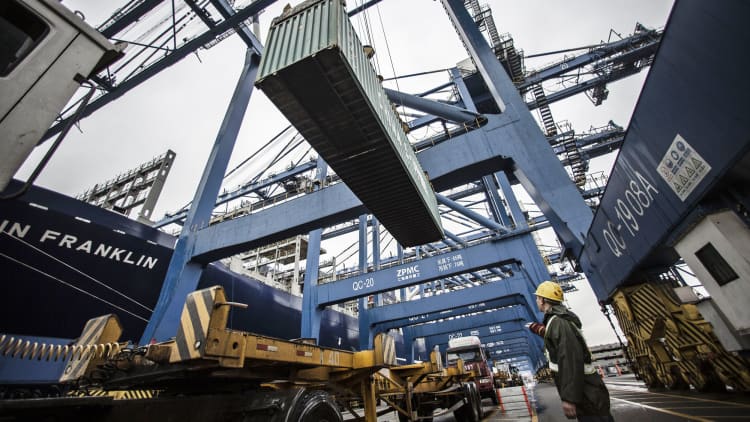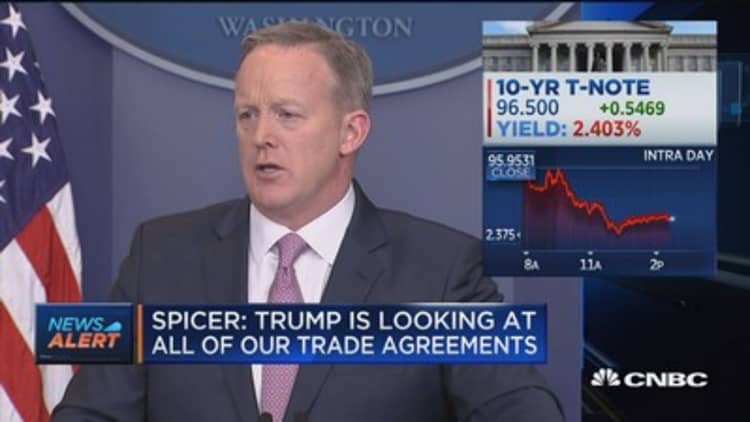
China's government newspaper used the weekend after U.S. President Donald Trump's inauguration to promote China as an alternative to the "crisis" of Western democracy and capitalism.
"Western-style democracy has played a progressive role in history, but right now it has heavy drawbacks," Han Zhen, Communist Party secretary of the Beijing Foreign Studies University, wrote in a Chinese editorial in the People's Daily.
The article and two similar pieces filled up a full page in the government paper on Sunday, and blamed Western democracy and capitalism for global troubles such as the financial crisis and populist movements in the U.S. and Europe. In this context, the editorials said, China could show the benefits of "socialism with Chinese characteristics."
Beijing is trying to enter what it sees as a leadership gap created by worries around Trump, said Scott Kennedy, director of the Project on Chinese Business and Political Economy at the Center for Strategic and International Studies.
"I think they're just trying to take advantage of what looks like a disorderly transition in the U.S. and a great anxiety around the world about what a Trump administration looks like," Kennedy said.
The commentary pieces follow other recent statements that criticize Western democracy as a concept. In the month ahead of the U.S. presidential election, Chinese commentators in state-run media said the campaign showed the "dysfunction of democracy" and said "the U.S. needs political reform."
This weekend's editorials continue Beijing's efforts to demonstrate that China's communist version of business, economic and political development are a viable alternative for the world at large.
Last week, Chinese President Xi Jinping also played up his country's role as a promoter of globalization during his speech at the World Economic Forum in Davos, Switzerland. Xi was the first Chinese head of state to attend the annual gathering of elites.
'Democracy isn't meant to be efficient'
But China has a litany of its own struggles, if only on the financial side.
State ownership of many industries has led to inefficient growth fueled by high levels of debt that China must reckon with. A yearslong attempt to shift the economy away from manufacturing to consumption has hit setbacks as reform efforts stall and China's overall economy stagnates. Gross domestic product grew in 2016 at its slowest pace in 26 years, a report said Friday. And China is trying to keep the yuan from weakening as capital is bleeding out of the country.
Meanwhile, Xi must set the stage for his own consolidation of power at a Communist Party congress this fall.
"When you have a country like China whose growth is slowing with massive debt, with concerns of its neighbors as it moves to become more powerful, I don't know if it's the right time for China to be strongly promoting its system relative to others," Kennedy said.
"Democracy isn't meant to be efficient. ... It's meant to reflect diversity, have checks and balances on power and proceed in a manner where everyone has a say," Kennedy said.



